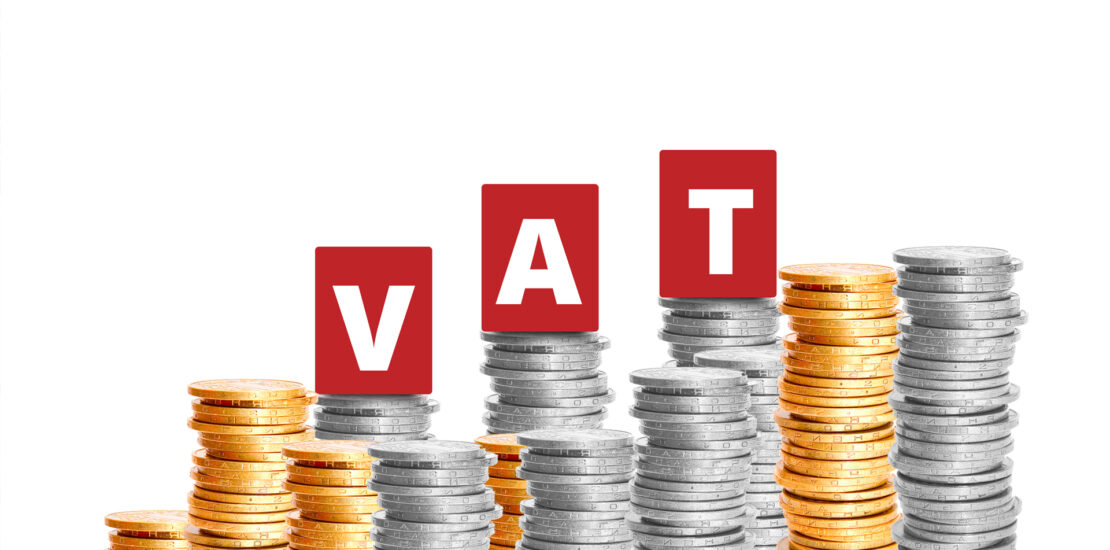VAT Compliance
- January 11, 2023
- Posted by: CA Akhilesh Kumar Jain
- Category: Uncategorized

Value Added Tax
Value Added Tax (VAT) was introduced in the United Arab Emirates (UAE) in 2018 by the Federal Tax Authority (FTA), with the aim of increasing the country’s non-oil revenue and boosting its economy. Since its introduction, VAT has become a crucial aspect of doing business in the UAE and it is essential for businesses to understand the VAT regulations and ensure compliance. Value Added Tax (VAT) was introduced with a standard rate of 5%. VAT is a tax on the value added to goods and services, and it applies to most supplies made in the UAE, as well as imports and exports. Businesses operating in the UAE are required to register for VAT if their taxable supplies exceed a certain threshold, and to file regular VAT returns with the Federal Tax Authority (FTA). Failure to comply with VAT regulations can result in penalties and fines. VAT has significantly impacted the economy of the UAE, and businesses must be aware of their VAT obligations and take steps to ensure compliance with the regulations.
This blog provides a comprehensive overview of the VAT compliances in the UAE, including:
- VAT Registration :
- Under the UAE VAT law, businesses with a taxable supply of goods or services with an annual turnover exceeding AED 375,000 must register for VAT. If a business's annual turnover is less than AED 375,000, it can choose to register voluntarily. Businesses can register for VAT through the Federal Tax Authority's e-services portal. The registration process requires businesses to provide information such as the company name, nature of the business, and contact details of the business owner.
- VAT Returns Filing :
- VAT-registered businesses must file VAT returns on a regular basis, depending on the turnover of the business. Businesses with an annual turnover of less than AED 5 million are required to file VAT returns on a quarterly basis, while businesses with an annual turnover of AED 5 million or more must file returns on a monthly basis. VAT returns must be filed electronically through the FTA's e-services portal and must include details of the business's taxable supplies, exempt supplies, imports, and VAT paid and recovered.
- Invoicing Requirements :
- VAT-registered businesses must issue VAT invoices for all taxable supplies of goods and services. VAT invoices must contain the following information :
- The name and address of the supplier and recipient
- The date of supply
- A description of the goods or services supplied
- The amount of VAT charged
- Invoices must be issued within 14 days of the supply of goods or services, and a copy of the invoice must be retained by the business for a period of five years.
- Record Keeping :
- Businesses must maintain accurate and complete records of their VAT transactions, including VAT invoices, receipts, and bank statements. These records must be readily available for inspection by the FTA if requested and must be kept for a period of five years. Businesses must also maintain records of the calculation of VAT payable, input tax, and VAT refunds claimed.
- Refunds and Input Tax :
- VAT-registered businesses may be eligible for a refund of VAT paid on purchases if they are unable to recover the VAT as input tax in the course of their business. Input tax is the VAT paid by a business on its purchases and expenses, which can be claimed as a credit against the VAT payable on its sales. To claim input tax, businesses must have a valid VAT invoice, which shows the amount of VAT paid and the date of payment.
- Penalties and Fines :
- The FTA can impose penalties and fines for non-compliance with VAT regulations, including failing to register for VAT, failing to file VAT returns, and issuing incorrect VAT invoices. Penalties and fines can range from AED 1,000 to AED 50,000, and the FTA may also impose daily fines for ongoing non-compliance.
Conclusion
VAT compliance is a critical aspect of doing business in the UAE, and businesses must ensure they understand the VAT regulations and comply with the rules and requirements. If you require assistance with VAT compliance, it is advisable to seek the help of a professional tax consultant to ensure compliance and avoid penalties and fines.
how can we help you?
Contact us at the MNS Business Solutions office nearest to you or submit a business inquiry online.